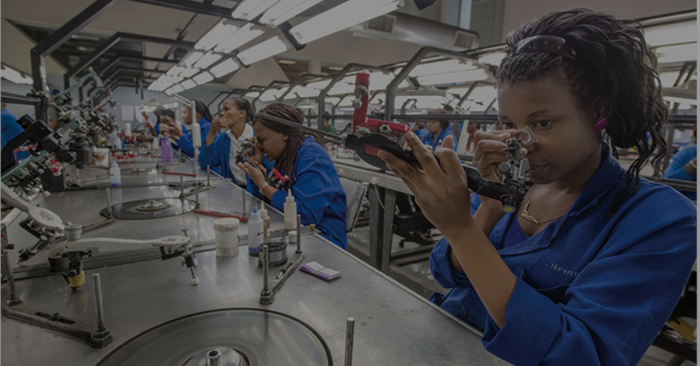(4 Minutes Read)
To give the economy a small boost, Botswana’s president has called for diamonds to be polished and cut locally. However, Botswana needs to diversify its revenue further to help its faltering economy recover.
Botswana will cut back its 2025 output of diamonds by 16% in comparison to the year, as demand falls and lab-grown diamonds are becoming the preferred choice. Bottom lines of diamond mining companies are steadily declining, and lab-grown diamonds are becoming a more affordable alternative.
For Botswana, where diamonds account for 80% of its export revenue, this situation is particularly challenging. Faced with the weak global demand, Debswana announced in May that it would temporarily pause production at its flagship Jwaneng mine as well as at the Orapa mines, the world’s largest by area.
To give the economy a small boost, Botswana’s president has called for diamonds to be polished and cut locally. However, Botswana needs to diversify its revenue further to help its faltering economy recover.
Botswana is a major global diamond exporter, with diamonds accounting for a significant portion of its total export revenue. In 2022, Botswana exported USD 7.4 billion in diamonds, making it the sixth-largest diamond exporter in the world. The primary export destinations for Botswana’s diamonds are the United Arab Emirates, Belgium, India, Hong Kong, and Israel.
Botswana is committed to ethical and sustainable diamond mining practices, aiming to enhance transparency and accountability in the diamond industry. The government of Botswana has implemented measures to ensure the traceability and transparency of rough diamond exports. Botswana is working towards becoming a major certification hub for rough diamonds, aligning with G7 requirements to prevent sanctioned diamonds from entering G7 markets.
Botswana’s President, Duma Boko, has announced a policy shift to promote local cutting and polishing of diamonds before export, aiming to maximise economic benefits and create jobs. This move seeks to retain diamond processing within Botswana and reduce reliance on foreign centers like India, where most of Botswana’s rough diamonds currently go for processing.
The policy is part of a broader “beneficiation” strategy, meaning adding value to raw materials within the country before export. The initiative aims to boost Botswana’s economy by generating more jobs and revenue from the diamond industry.
The government plans to encourage companies to establish cutting and polishing factories in Botswana, with incentives for attracting investment. While Botswana and De Beers have previously attempted to promote local processing, challenges like high costs of doing business have hindered progress.
Read Also:
Currently, most of Botswana’s rough diamonds are exported to countries like India for cutting and polishing. President Duma Boko has called for every diamond from Botswana’s mines to remain in the country for value addition.





